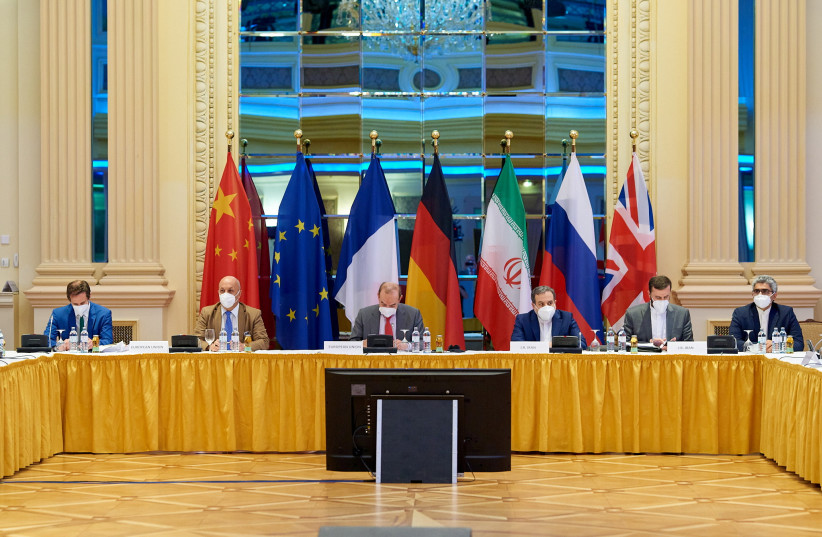The United States, France, Britain and Germany are pushing for the IAEA Board of Governors to condemn Iran for failing to resolve longstanding questions about illicit uranium traces at undeclared sites, according to a draft resolution.
If the resolution is approved, it would be only the second time the Islamic Republic has been condemned since before the 2015 JCPOA nuclear deal was signed.
When has the West condemned Iran?
The last time was in June 2020 and it led Tehran to make some concessions to nuclear inspectors within less than two months.
On the other hand, some worry that the move could also anger Iran, damage the prospects for rescuing the 2015 Iran nuclear deal and lead to retaliation.

In the past, the Islamic Republic has reduced access of IAEA inspectors or unleashed attacks on international shipping to try to pressure the West or IAEA into ignoring nuclear violations and cover-ups related to its past military dimensions.
The ayatollahs have also threatened to leave the Nuclear Non-Proliferation Treaty entirely, which would be a more extreme form of retaliation.
Despite concerns that IAEA condemnation could harm the nuclear talks, those negotiations have been frozen since March and have made little progress in general since Iranian President Ebrahim Raisi took power in summer 2021, backing away from spring 2021 nuclear understandings reached with his predecessor.
Iran's narrative
Iran, which insists its nuclear program is peaceful while the West says it is moving closer to being able to build a bomb, would respond to any “unconstructive action” taken at next week’s board meeting, the Iranian Foreign Ministry said.
Western powers had held off submitting a draft resolution at numerous previous quarterly meetings of the International Atomic Energy Agency’s 35-nation board on this issue to avoid derailing talks. But the West’s patience may have reached its limit.
NO CREDIBLE ANSWERS
The issue has now come to a head since IAEA Director-General Rafael Grossi told member states this week that Iran had not given it credible answers on the particles found at three mainly old, but undeclared sites, although both sides agreed in March to revive discussions aimed at resolving such open issues by now.
The IAEA board “calls upon Iran to act on an urgent basis to fulfill its legal obligations and take up immediately the (IAEA) director-general’s offer of further engagement to clarify and resolve all outstanding safeguards issues,” the draft text sent to IAEA member states and seen by Reuters on Wednesday said.
The text, dated Tuesday, did not say which countries drafted it. Two diplomats said it was the United States and the so-called E3, namely France, Britain and Germany.
The draft has yet to be formally submitted for the meeting that starts next Monday. Board members could adopt it unopposed or put it to a vote, but the draft is likely to be adjusted before it is submitted.
So far, there has been no mention of referring Iran’s nuclear violations to the UN Security Council, which could invoke a return to full global sanctions against Tehran.
But such a threat could draw closer and could lead Iran to finally cut a deal with the West.
Also, after the last IAEA condemnation, the Islamic Republic was hit by a cascade of explosions in nuclear and other facilities, attributed by many to the Mossad feeling that an IAEA vote could allow it to turn up the heat.
Despite that possibility, on record Iran remained headstrong with Iranian Foreign Ministry spokesman Saeed Khatibzadeh saying, “We will naturally respond in a strong and appropriate manner to any unconstructive action” by the board, according to the ministry’s Telegram channel.
